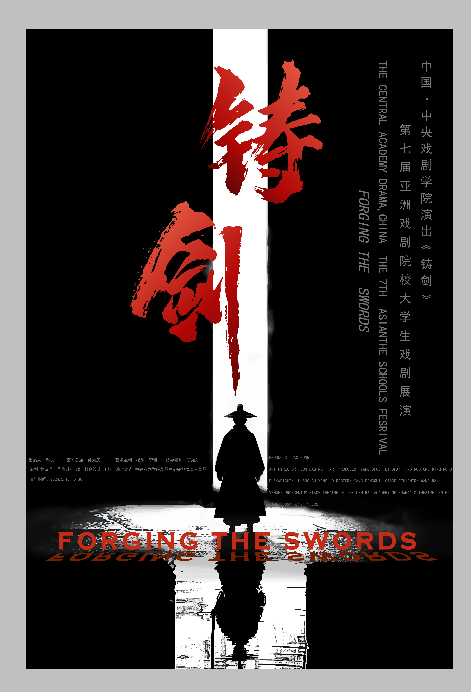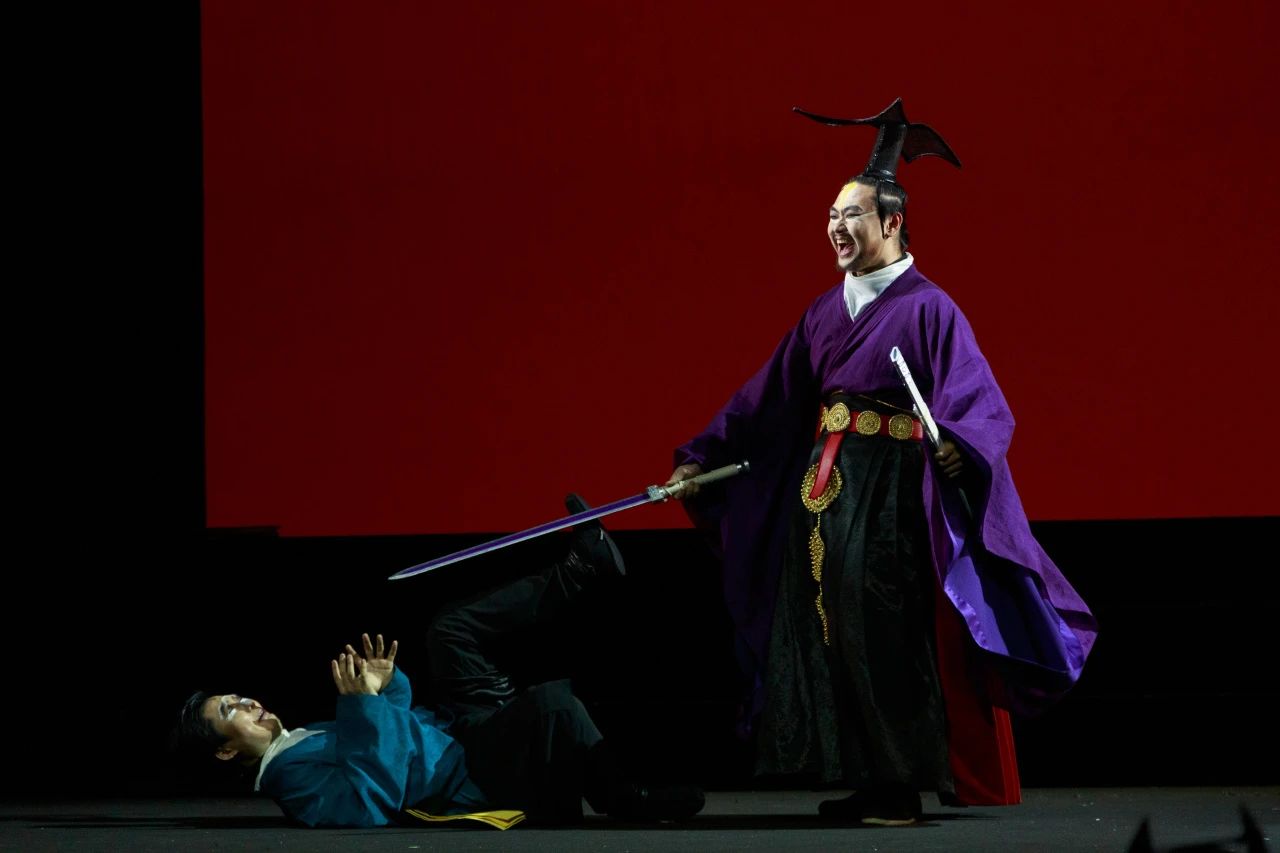
Director: Yang Fengrui
Playwright: Huang Shiyang
Institution: The Central Academy of Drama, China
Venue: Proscenium Stage Theatre, CAD Changping Campus
Time: 15:30, May 18, 2024
Event: The 7th Asian Theatre Schools Festival

Director’s Notes
This piece is adapted from Mr. Lu Xun's short novel of the same name, based on the story of the ancient supernatural novel ‘The Tomb of the Three Kings’. As early as the Warring States period, this story was widely circulated, recorded in historical documents such as Liu Xiang's ‘Biographies of the Martyrs’, Cao Pi's ‘Records of Strange Events’, Gan Bao's ‘In Search of the Supernatural’, and Zhao Ye's ‘Spring and Autumn Annals of Wu and Yue’ during the Eastern Han Dynasty. Building on numerous versions of the same story, this piece restructures the plot and delves deeper into the emotions of the characters. The performance endows this absurd and imaginative mythological legend with Chinese aesthetic expressions and philosophical connotations. As a young theater creator, we attempt to explore the ‘people of the past’, examine the ‘people of the present’, and ponder the ‘people of the future’ through this Chinese historical legend.
The performance tells a story about revenge. ‘Revenge’ is a common topic being discussed on both literary and theatrical stages all over the world. A kind-hearted child is suddenly burdened with the responsibility of avenging his father's murder. Two marvelous swords forged from the same piece of fine iron are somehow placed at the end of hatred. Three severed heads, entwined in the scorching cauldron. In the story, we see kings, commoners, avengers, and the avenged, but when hatred blinds us, all we can see is the dark path before us. As long as the internal struggle remains, the fumes of the battlefield never dissipate. True strength lies not in whether you can retaliate but in whether you can forgive. When the sixteen-year-old Mei Jian Chi decides to bind himself with vengeance, perhaps he has already embarked on the path of self-destruction.
But folktales are merely folktales, and mythological legends are only for later generations to discuss. As living beings in the present, how should we face the surrounding hatred? The value of self, the spirit of chivalry, the meaning of revenge – all of these are placed in doubt.
Where will our obsession ultimately lead us? Will revenge lead to true freedom? Or just an endless delusion?

Synopsis
Legend has it, during the Spring and Autumn period and the Warring States period, the queen of the Chu Kingdom, after a pregnancy of ten months, gave birth to a piece of refined iron that was pure blue and transparent. In response to this call of heaven and earth, the King of Chu gave Gan Jiang, a master swordsmith, three years to forge this rare treasure into the most peerless sword in the world. When the sword was completed, a divine phenomenon occurred, and in the furnace appeared two swords, one male, another female. At the same time, Gan Jiang's son, Mei Jian Chi, was born.
On the day of the sword presentation, Gan Jiang handed the female sword to the Chu King, while keeping the male sword for himself. The King, who is naturally suspicious and tyrannical, fearing that Gan Jiang might forge even more formidable swords in the future, orders General Yan Zhi Ao to kill Gan Jiang and his family. After Yan Zhi Ao killed Gan Jiang, he was overcome with remorse and sadness, leading him to secretly release Gan Jiang's wife, Mo Ye, and the infant Mei Jian Chi. Subsequently, fearing Yan Zhi Ao's influence among the crowds, the Chu King ordered him to take his own life. Yan Zhi Ao, harbored with resentment, perished in the furnace.
Sixteen years later, at the coming-of-age ceremony of Mei Jian Chi, the dying Mo Ye revealed to him the truth of Gan Jiang's murder and instructed Mei Jian Chi to seek revenge with the male sword. The kind yet weak-willed Mei Jian Chi suddenly bears the mission of avenging his father, which became the sole purpose of his life.
Outside the palace, Mei Jian Chi encountered the Chu King's troops. Despite his father's killer being within grasp, he couldn't bring himself to draw the sword for revenge. With a clutch, a masked vigilante appeared and rescued Mei Jian Chi. The vigilante was none other than Yan Zhi Ao, who had survived and now remained only for revenge. Seeing Mei Jian Chi's hesitation, Yan Zhi Ao offered to avenge his father on his behalf, but at a cost: Mei Jian Chi's male sword and his own head. Mei Jian Chi, after an immense internal struggle, resolved to offer both.
Inside the palace, seizing the opportunity of presenting Mei Jian Chi's head, the masked vigilante used the male sword to slash off the Chu King's head. Just as he thought his great vengeance was achieved, the head of Mei Jian Chi and the Chu King engaged in a deadly struggle within the cauldron. Mei Jian Chi, being young, was no match for the Chu King. Seeing this, the masked vigilante drew his sword and cleaved his own head, also joining the battle. In the end, the three identical pieces of heads fought each other fiercely, making it impossible to distinguish their identities. Out of desperation, the ministers had no choice but to bury them together, naming it the ‘Tomb of the Three Kings’.
The deed was finally done. However, Mei Jian Chi's soul found itself in an endless field. He curled up alone, pondering the meaning of it all. Then, approaching him, was his father, whom he had never seen before...

